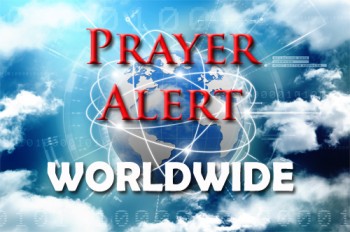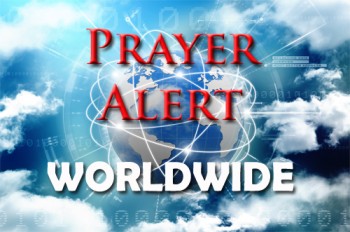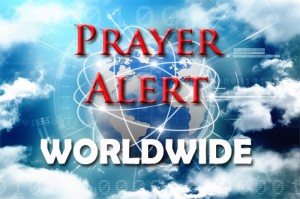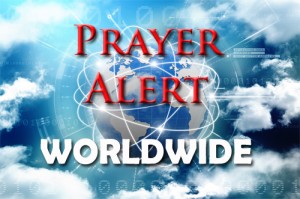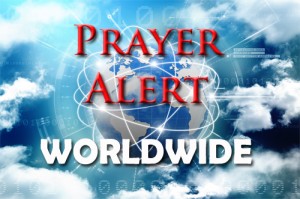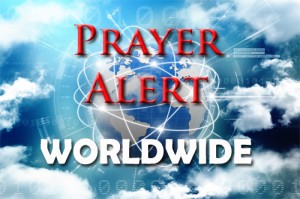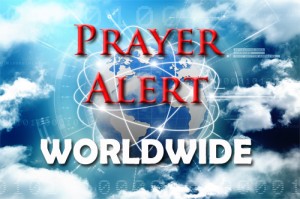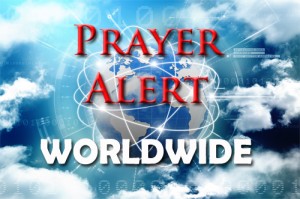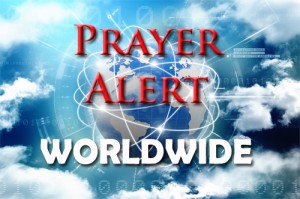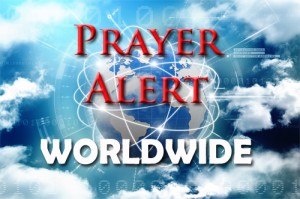Displaying items by tag: Venezuela
What next for Venezuela?
With their country in turmoil, both Nicolás Maduro and Juan Guaidó claim to be president, and neither has any incentive to back down. Guaidó has huge popular support, and is backed by many western powers (including the EU), but has little control over the levers of power. Although Maduro is still backed by allies such as Russia, Turkey, and Cuba, he is under unprecedented international pressure. Military top brass still support him, but there have been defections by junior officers. If he is to survive, he will need to keep the army loyal, which means finding a way to keep the ordinary soldiers paid. Another solution - but not one that would benefit ordinary people - is a military coup, but that might well mean a return to kleptocracy, mismanagement and authoritarianism. In any case, a change at the top would not placate the opposition, now emboldened and set on restoring democracy. Maduro has nothing to gain and everything to lose from stepping down, as he would probably be called to account for his authoritarian rule. Guaidó has promised an amnesty for any members of the armed forces who ‘contribute to the reestablishment of democratic order’. Another possibility, even if very unlikely, would appear to be outright conflict with the USA. Donald Trump, who publicly supports Guaidó, has just imposed sanctions on the country’s state-owned oil company.
Venezuela's Christians urge prayer as crisis worsens
On 24 January Venezuela’s opposition leader Juan Guaidó swore himself in as the rightful head of state, with the support of the USA and other nations in the region, as he attempts to remove President Maduro. He now faces the daunting task of establishing a transition plan without control over crucial state institutions and armed forces that have, so far, disowned him. Venezuela's churches have called for prayer as pressure mounts on Maduro to step down. Mass demonstrations against the economic mismanagement that has caused widespread poverty have been taking place. Pastor Samuel Olson, president of the Evangelical Council of Venezuela (ECV), invited the nation to pray 'together as a family, asking God that through His Holy Spirit He would care for, direct, and bless our nation in this critical hour of its history'. ECV are backing Juan Guaidó as the man 'called to conduct the nation in this period of transition'. See also
Countries needing prayer in 2019
Cameroon’s president Paul Biya said he wants dialogue with separatist elements to end the ongoing security crisis in the country’s English-speaking regions. But in the same breath, he threatened, ‘If my appeal to warmongers remains unheeded, the defence and security forces will be instructed to neutralise them. I am aware of the difficulties the rebels are putting citizens in.’ Criminal gangs are exploiting the chaos to expand their activities. See http://www.africanews.com/2018/12/31/cameroon-president-ready-for-dialogue-over-anglophone-crisis/ Pray also for peace in Venezuela, for the thousands who have fled, and the families of those killed. 90% of Venezuelans live in poverty. Malnutrition is rampant. Once-eradicated diseases have returned. 3 million have fled to Colombia. Outsiders say President Maduro is a control freak, and Venezuelans need a revolution. Pray that Mr Maduro will listen to wisdom that will bring relief to citizens. See https://www.forbes.com/sites/francescoppola/2018/12/31/why-venezuelas-hyperinflation-problem-is-so-difficult-to-solve/#660ea3c6373c For other urgent international challenges, click the ‘More’ link.
Caribbean: surge in Venezuelan asylum seekers
Until a week ago, Enrique Ceballos was a high court judge in Venezuela. Now, because of threats around his work as a judge, he is waiting on a plastic chair outside an NGO-run registration centre for asylum-seekers in Port of Spain, the capital of Trinidad and Tobago, along with his wife, son, and daughter. ‘I needed to rule in favour of the government,’ he said. ‘It’s really difficult to work like that.’ Over 1.6 million Venezuelans like Ceballos have left the country since 2015, leaving behind a crumbling economy and a political crisis that has triggered shortages in food and healthcare. Hundreds of thousands are in Colombia, others in the Caribbean - a few kilometres from Venezuela’s coast. Venezuelans are often helped to apply for asylum and to integrate by Christian NGOs, as the soaring numbers have taken small island governments by surprise.
Venezuela: financial crunch, earthquake
On 22 August Venezuela’s northern coast was rocked by a 7.3 magnitude earthquake felt across the Caribbean and hundreds of kilometres away in Caracas where political leaders were celebrating their new economic plan to rescue the crumbling economy from rampant hyperinflation. They drastically removed five zeros from the bolivar and pegged it to a cryptocurrency (digital currency operating independently of a central bank) while raising the minimum wage by 3,000%. Economists fear this will worsen the financial crisis that has driven over 500,000 Venezuelans overseas this year, and warn that inflation rates could go even higher. The financial crunch and earthquake are symbolised by social media photographs showing ‘the Tower of David’, a notorious and symbolic abandoned skyscraper, now a horizontal slum, that was severely damaged by the quake. The proven oil reserves in Venezuela, recognised as the largest in the world (297 billion barrels), have been corruptly mismanaged. See also
Venezuela: unrest after election result
In a worsening economic crisis Venezuelans re-elected president Maduro, causing an international backlash to the ‘landslide vote’ marred by opposition boycotts and vote-rigging claims. Fourteen countries, including Argentina, Brazil and Canada have recalled their ambassadors from Caracas in protest. Leaked data from two Caracas hospitals show major shortages of food and essential supplies causing more underweight babies being born and an increase of babies and new mothers dying. Venezuela is the most corrupt country in Latin America. A recent investigation by Transparency International showed that the government had signed contracts worth at least US$30 billion with Odebrecht, the Brazilian construction giant at the heart of an enormous bribery scandal in Latin America and elsewhere. Donald Trump called for new elections to ‘end the repression’ of Venezuelans. See
Venezuela: poverty, politics, and protests
71% of Venezuelans identify themselves as Catholic, and the Church runs numerous charities plus 170 schools for poor children. The country faces 50% hyperinflation, food shortages, black market influences on prices, and failing health systems, with medicine and equipment increasingly not available. Widespread crime is forcing churches to remain locked. There will be a snap election on 20 May, and in the streets there are ongoing protests against a coalition regime they do not trust. Tensions have grown between President Maduro and local bishops. The president has asked them to leave politics out of the pulpit, calling political comments ‘disrespectful’. Not a single thing can be done easily in Venezuela: paying bills, buying food, commuting, visiting loved ones, finding decent-quality women’s hygiene products. In times of crisis like these, religion plays a comforting role for many. See also
Venezuela: unprecedented economic and political crisis
Six months ago, 93% of Venezuelans said their income was not sufficient to buy the food they need. 75% reported suffering weight loss, averaging 9 kg. The price of food is fifteen times the minimum wage, and prices continue to rise. The director of a Caracas-based health and nutrition charity said, ‘Malnutrition in Venezuela is a problem of corruption, not a lack of money’. Government price controls and other policies have crippled domestic production, and after the oil price drop caused imports to decrease dramatically, insufficient food is available for the over 30m Venezuelans. Meanwhile President Maduro’s efforts to consolidate power amid a deepening economic and humanitarian crisis have drawn widespread international condemnation. There are severe food and medicine shortages, soaring crime rates, and an increasingly authoritarian executive. 70% of the population is Roman Catholic and 29% percent Protestant. See
Venezuela: food shortages and poverty
Despite being an oil-rich country, Venezuela has record levels of child malnutrition as it experiences severe shortages of food and an inflation rate of over 700%. The crippling economic crisis means that eating meat is a luxury for many, but the government believes it has the answer with a plan to breed and consume rabbits - ‘because rabbits breed like rabbits’, as President Maduro joked on state television when introducing the idea. A recent survey showed that nearly 75% of the population lost an average 19 pounds in weight from lack of proper nutrition because of poverty. Maduro said people needed to understand that the rabbit is not just a pet, it is 2.5 kilos of meat with high protein and no cholesterol. The IMF said voracious inflation will climb to 720% this year. Poor Venezuelans spend 10% of their income to buy a kilo of meat. See also
Venezuela: A sham election
President Nicolás Maduro won a controversial election for a new Constituent Assembly with the power to rewrite Venezuela’s constitution, allowing him to replace the current National Assembly with an assembly of 545 members nominated by his administration. The impoverished nation - wracked by an economic crisis, hyperinflation, food shortages, medicine shortages, starvation, skyrocketing infant mortality, civil unrest and street violence - has endured months of anti-government protests with many violent deaths. Maduro said his new Assembly ‘would bring peace to a polarised country, with all branches of the government falling under the political movement.’ Two of Australia’s major trade unions pledged support for the socialist dictator of Venezuela and his Bolivarian Revolution Socialist Government while America has imposed sanctions and the international community are discussing ways to stabilise the country after allegations of election ballot fraud. https://www.theguardian.com/world/2017/aug/02/venezuela-voting-fraud-corruption-allegations-protests.
